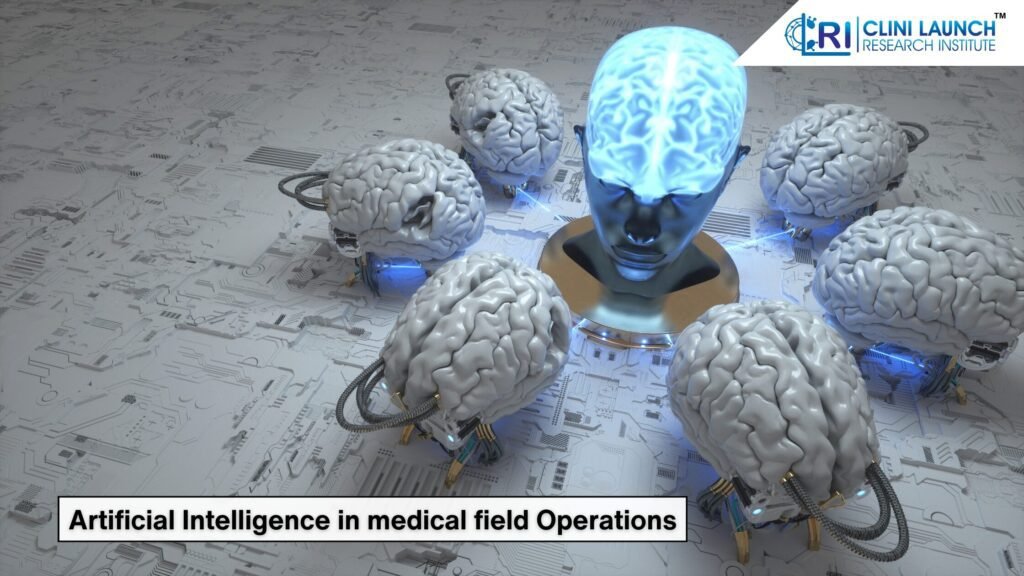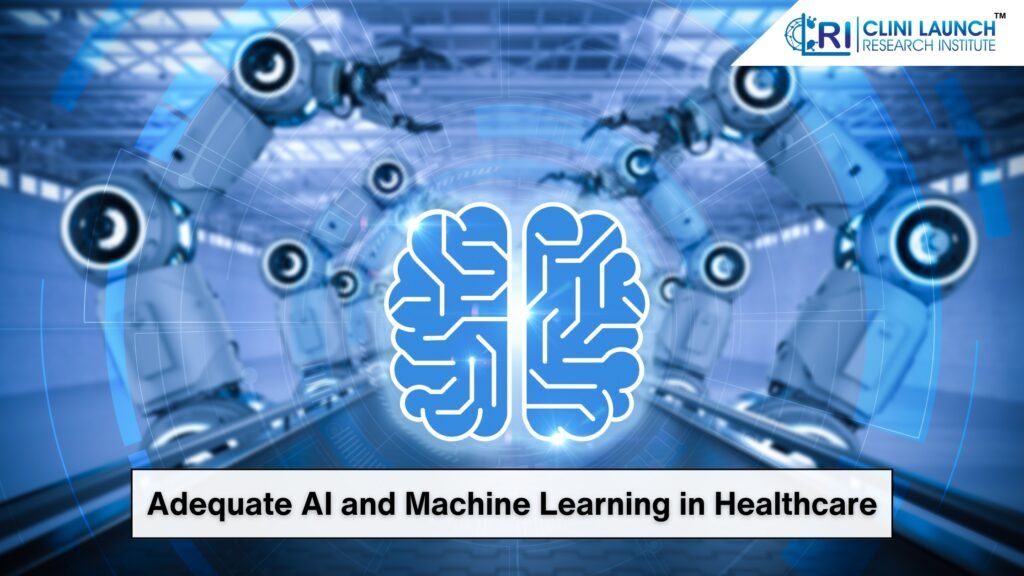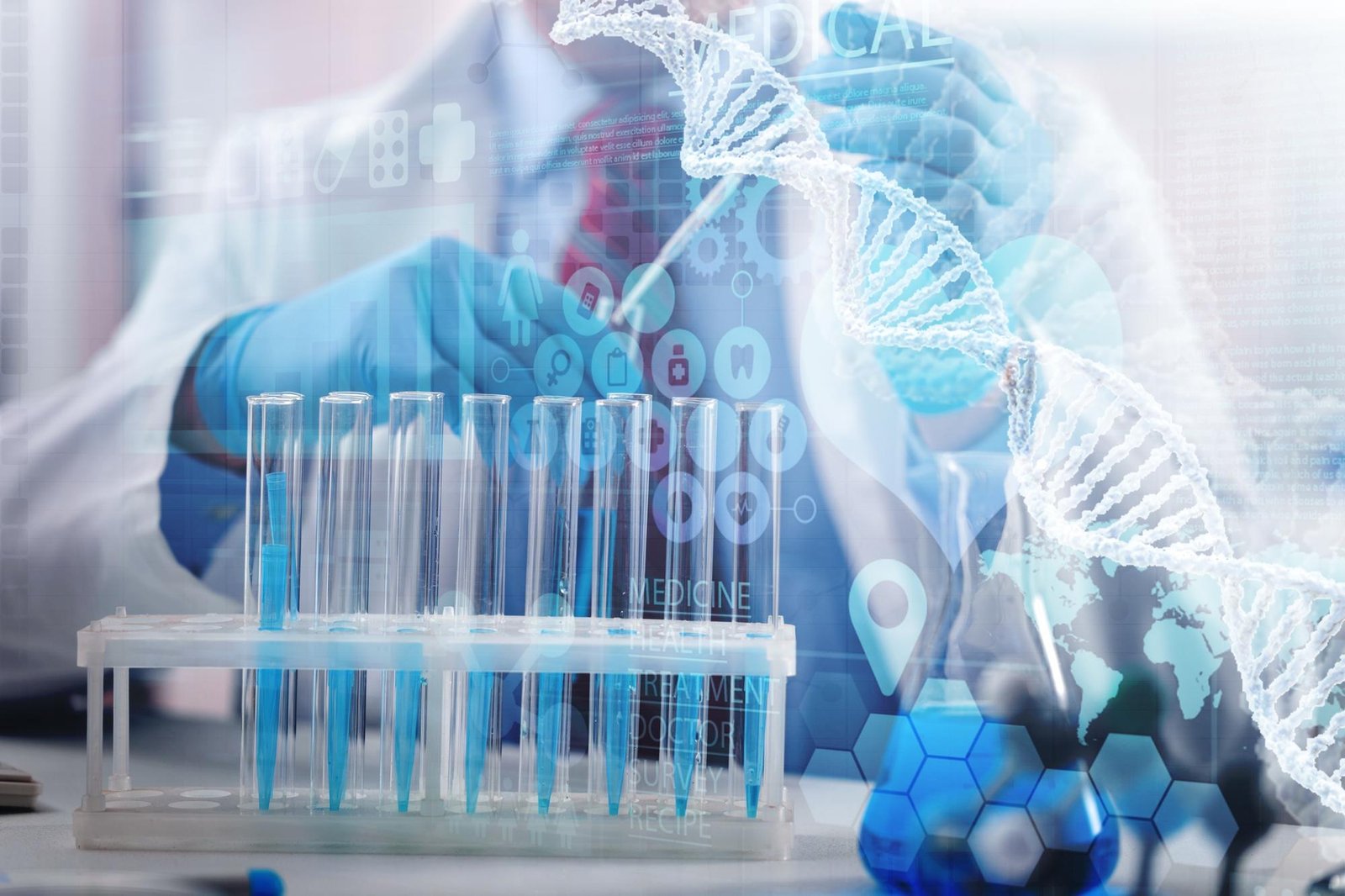AI and machine learning in healthcare uses various processes to simulate human intelligence, performing complex tasks like diagnosis, personalized treatment planning, and survival predictions. By analyzing vast amounts of data, artificial intelligence can detect patterns, trends, and anomalies more efficiently than humans, enhancing decision-making and improving patient outcomes. It offers immense potential in healthcare, transforming medical processes from disease diagnosis to personalized treatment plans for critical conditions like cancer.
Machine learning tools can analyze vast data to identify patterns and predict outcomes more accurately than traditional methods. Robotic systems with AI in medical field enhance precision by minimizing human error, reducing physical fluctuations, and providing real-time updates during operations. In this blog post, we will be going to know more about artificial intelligence and machine learning in medical diagnosis, pattern recognition, treatment planning, drug discovery, its operations, and future considerations.
Enroll for “AI and ML in Healthcare Classes”.
AI and Machine Learning in Healthcare
Credit: Tejas Dhanakoti (Video Producer at CliniLaunch)
AI specifically helps healthcare institutions or organizations with decision-making processes including workflow management, and task automation. In this situation, healthcare professionals like AI engineers use the latest machine learning techniques to flag abnormal activities while prioritizing life-threatening scenarios. Following are the two diagnosis systems that healthcare professionals use with AI and machine learning in healthcare techniques.
Image Analysis
Artificial intelligence in medical field is changing how doctors use medical images like X-rays, MRIs, and CT scans, making the process faster and more accurate. AI in healthcare tools like EyeArt can spot serious eye problems like diabetic retinopathy, while Gastrointestinal Artificial Intelligence Diagnostic System (GRAIDS) helps find cancerous growths in the stomach. AI in medical field systems like the advent of Convolutional Neural Networks (CNNs) can detect lung nodules that doctors might miss. These tools speed up diagnoses, especially in emergencies, and make healthcare more accurate and efficient. AI is helping doctors give better, faster care to patients.
Read a blog post on “Advanced Machine Learning in Medical Imaging Classified 2024”.
Pattern Recognition
Pattern recognition techniques have been used in healthcare to analyze medical data, like images and signals, to help doctors make better decisions. These methods improve the speed and accuracy of diagnoses, which is especially important in critical situations like intensive care. New algorithms are being developed to match the complexity of modern healthcare systems. For instance, advanced algorithms can predict and analyze patient conditions in real-time, allowing for faster clinical responses.
One notable innovation is a hybrid feature selection method using artificial neural networks, which helps identify the most important and biologically relevant data from large datasets. Additionally, ensemble classifiers, such as decision trees, are used to accurately classify medical images, like identifying malignant cells. These methods have achieved high sensitivity and specificity in clinical tests, improving diagnostic accuracy and supporting better and early detection in patient care.
AI in Medicine: Treatment Planning and Drug Discovery

Credit: Karthik C (Graphic Designer at CliniLaunch)
Personalized Medicine
Artificial Intelligence in medical field based personalized drug therapy is transforming how treatments are tailored to individual patients. It can forecast a patient’s reaction to particular drugs or treatments by evaluating enormous volumes of data, such as genetic information, medical history, and lifestyle factors. Artificial Intelligence in healthcare based personalized drug therapy offers significant advantages, such as improving treatment outcomes and minimizing side effects.
In oncology, AI has been particularly impactful. For example, in lung cancer, AI tools analyze genetic data to identify mutations in tumors, allowing for more precise treatment recommendations. AI can predict which therapies will work best based on the unique genetic profile of each patient’s cancer. These AI-driven methods have demonstrated high accuracy and effectiveness in clinical tests, ultimately leading to better patient care, improved treatment responses, and enhanced quality of life.
Read a blog post on “Lung Cancer Symptoms”.
Drug Discovery
The use of Artificial Intelligence and machine learning in the healthcare and pharmaceutical industries has advanced significantly over the past few decades. AI and ML are essential tools in drug discovery, helping to analyze big data, which refers to massive, complex datasets that traditional methods struggle to process. Modern AI techniques allow scientists to extract valuable patterns and features from these datasets, such as gene expression data, which helps identify genes linked to diseases. By analyzing these genetic markers, AI aids in discovering drug targets for various conditions. Additionally, quantum mechanics, which calculates molecular properties at the subatomic level, plays a key role in understanding protein-ligand interactions.
While traditional computational methods can be costly and inaccurate, AI improves their efficiency and accuracy. AI-driven algorithms also enhance molecular docking processes, reducing costs and speeding up the drug development pipeline, thus improving both drug efficacy and research efficiency.
Read a blog post on “Artificial Intelligence in Medical Field”.
Artificial Intelligence in medical field Operations

Credit: Karthik C (Graphic Designer at CliniLaunch)
Administrative Tasks
Healthcare providers and staff often spend a lot of time on administrative tasks, such as processing claims and managing records. AI helps reduce the burden of administrative tasks from healthcare providers that refrain them from patient care. Technologies like robotic process automation (RPA) and machine learning can automate tasks like billing, clinical documentation, and other routine work. By using AI to handle these repetitive tasks, healthcare organizations can save time, cut costs, and improve efficiency. With more data available, AI can learn and improve workflows, making it easier for healthcare providers to focus on patients rather than administrative duties.
Patient Monitoring
The use of artificial intelligence in patient monitoring, especially through Remote Patient Monitoring (RPM), is changing healthcare for the betterment. RPM allows doctors to track patients’ health conditions from a distance, reducing the need for frequent in-person visits. It helps by analyzing patient data, identifying potential health issues early, and guiding treatment to avoid complications. This makes healthcare more efficient and cost-effective.
RPM also helps prevent unnecessary hospital stays, reducing healthcare costs and improving patient outcomes. The FDA (Food and Drug Administration) regulates AI in medical devices to ensure safety and effectiveness for patients. Continuous RPM improves the quality of care, lowers the risk of complications, and reduces hospital readmissions, making healthcare safer and more accessible.
Enroll for “AI and ML in Healthcare Classes”.
Ethical Considerations and Future Outlook

Credit: Karthik C (Graphic Designer at CliniLaunch)
Data Privacy and Security
As artificial intelligence becomes more integrated into public health, it brings both promising benefits and also potential risks. Artificial Intelligence in medicine offers the opportunity to revolutionize disease prediction, patient care, and public health management, leading to more precise treatments and improved efficiency. However, as AI technologies evolve, they raise important ethical concerns. For example, biases in AI algorithms could worsen existing health disparities, particularly for underserved or marginalized communities. If not carefully managed, it could deepen social and economic inequalities in healthcare.
Addressing these challenges, it is crucial to ensure that AI is used ethically and with a focus on health equity, promoting fairness for all populations. The main goal is to embrace technological advancements in a way that improves healthcare, promotes justice and a fair share for everyone.
Future Trends
While supporting the overall public health of a population and using it, people manage chronic illnesses themselves, such as asthma, diabetes and high blood pressure. Artificial Intelligence in medicine helps people connect certain people with relevant screening and therapy by reminding them to take steps in their care, such as taking medication. In preventive care cancer screenings by mammogram or lung cancer screening, can leverage AI to help produce results faster.

Credit: Irene Dankwa-Mullan, MD, MPH (Multifaceted approach to ethics and & equitable implementation of AI).
AI in medicine also helps promote information on disease prevention online, reaching large numbers of people quickly, and even analyzes text on social media to predict outbreaks. When physicians are actively participating in caring for people and other clinical duties, it can be challenging for them to keep pace with evolving technological advances that support care. Artificial intelligence in healthcare can work with huge volumes of information from medical journals to healthcare records and highlight the most relevant pieces.
Conclusion
AI and Machine Learning in healthcare are proving to be more accurate than humans in many healthcare tasks, as studies have shown. Artificial intelligence in healthcare is revolutionizing public health and medicine, transforming how healthcare professionals interact with patients, communities, and health data. While AI has tremendous potential to improve healthcare outcomes, personalized drug therapy, reduce costs, and enhance public health, it is crucial that these technologies follow strict ethical guidelines.
Ensuring fairness and equity with AI in medicine deployment will be key to benefiting all populations and maximizing its positive impact. At cliniLaunch, we offer expert designed courses that provide in-depth knowledge of Artificial Intelligence in healthcare. Join us to gain valuable insights and become a future leader in AI-driven healthcare innovation. Your journey to success starts here! Learn more: https://clinilaunchresearch.in/ai-and-ml-in-healthcare-training-institute-in-india/.





